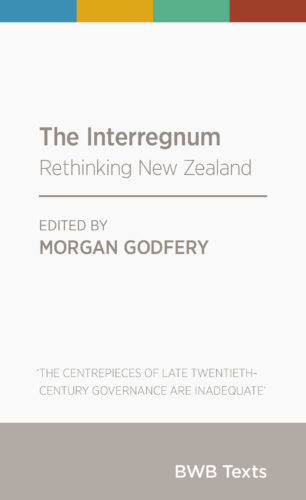
This reading carries on from here.
The eighth essay in The Interregnum is ‘Feminism and Silence’, by Holly Walker. Feminism belongs, to most people’s minds, to the sort of thing the left was occupied with before it went crazy. So I’m almost expecting this essay to be relatively conservative compared to the Marxist insanity in much of the rest of the book.
Happily, the basis of this essay is the real-life challenges of a Green MP who found it difficult to combine the demands of her job with the demands of raising a child. This makes a refreshing turn back towards the real world, and the hardships Walker faced in her short time in Parliament are relatable.
Unusually for the essays in this book, Walker’s effort here is honest and disarmingly humble. She writes that “most MPs knew very little about the bills they were speaking on,” and laments that the further she got sucked into the party Parliamentary system, “my ability to share my true thoughts diminished.”
Unfortunately, from there the essay degenerates into the same Marxist politics of antagonism as most of the rest of the book. Walker complains about the proportion of female MPs being too low at 29 percent, not stopping for even a second to question whether it needs to be any higher. The equality dogma has choked all other lines of thought out of Walker’s mind.
Indeed, she even goes as far as asking why Parliament can’t just shut down sooner for the sake of making it easier to combine being an MP with being a mother, as if having mothers in Parliament was so important that it was worth sacrificing a major part of the Government’s efficiency and effectiveness for. The cynic will note that MPs taking a pay cut to reflect the drastic reduction in work hours is not proposed here.
Walker hits the right note when she writes “Let’s unstitch the neoliberal, individualistic mindset we’ve all internalised,” but it’s not easy to see how this essay, or this book, ultimately contributes to that. Neoliberalism and Cultural Marxism work hand-in-hand in that they both serve to divide and conquer the people and to set them against each other to be more readily exploited by an international ruling class, so it’s not credible to argue against neoliberalism from a Marxist perspective.
The essay ends with the author declaring that she spent an entire year reading only words written by women. From the perspective of the eternal victimhood of the female this is no doubt a victory; from the perspective of a working-class man watching his university opportunities dwindle ever-further, as women are assisted to take his place despite already being a clear majority of university students, it seems obscene.
In summary, this piece is very similar to most of the other efforts in the book. It’s clearly written from a privileged, middle-class perspective, despite claiming to speak for the disadvantaged, and it furthers the divide-and-conquer narrative of globalism while claiming to oppose it.
